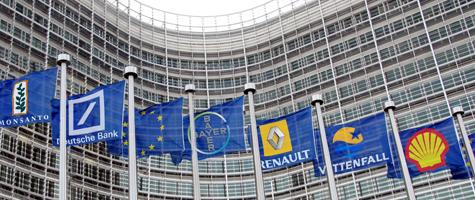EU, South Korea trade agreement overcomes final European hurdle

Bloomberg | Feb 17, 2011
EU, South Korea trade agreement overcomes final European hurdle
By Jonathan Stearns
The European Union overcame its final hurdle to a free-trade agreement with South Korea today when the EU Parliament endorsed the accord, which will expand a 70 billion-euro ($95 billion) commercial relationship.
The European Parliament in Strasbourg, France, voted in favor of the agreement that will make 99 percent of EU-South Korea commerce duty-free within five years. The 27-nation assembly gave its endorsement after reinforcing the possibility of “safeguard” measures to protect EU manufacturers, particularly carmakers, in the event of a surge in imports from Korea. The accord comes into force this July.
The EU-Korea deal is the world’s second-biggest free-trade pact, eclipsed only by the $1 trillion North American Free Trade Agreement among the U.S., Canada and Mexico that began in 1994. The EU and Korea signed the accord last October, 3 1/2 years after negotiations began.
Companies that may benefit include pharmaceutical producers such as London-based GlaxoSmithKline Plc, chemical makers including BASF SE, based in Ludwigshafen, Germany, and consumer- electronics manufacturers like Amsterdam-based Royal Philips Electronics NV. Farm exporters, shipping businesses and the financial- and legal-services industries also stand to gain.
European carmakers opposed the agreement, saying it will give an unfair edge to companies such as Hyundai Motor Co. and Kia Motors Corp. because of a disparity in auto trade. The EU imported about 450,000 Korean cars into its market of 15 million in 2008 while exporting fewer than 40,000 autos to Korea, where 1 million new cars are sold annually.
Since then the gap has narrowed, with EU auto imports from Korea falling to 294,000 last year while exports to Korea rose to 64,000, according to data from the European Commission, the bloc’s trade authority in Brussels.
The accord will eliminate Korean import duties worth 1.6 billion euros annually and European levies of 1.1 billion euros, according to the EU. The pact could increase Korea’s gross domestic product by as much as 5.6 percentage points over 10 years and create as many as 253,000 jobs in Asia’s fourth- largest economy, according to a joint report by the country’s state research institutes.





